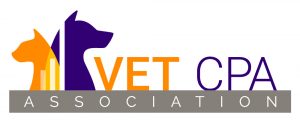The animal health industry is a broad field encompassing many different types of professionals and care centers. The term animal health means the broader health ecosystem  to some and pet care to others. While the clientele may differ in each setting, the goal is always the same; to help the patient heal and feel better regardless of how many legs they have! Another commonality of all animal health professionals is the desire to pay less in taxes legally.
to some and pet care to others. While the clientele may differ in each setting, the goal is always the same; to help the patient heal and feel better regardless of how many legs they have! Another commonality of all animal health professionals is the desire to pay less in taxes legally.
If you’d like to pay less in taxes, then read on…
What is cost segregation and what does it have to do with me?
Cost Segregation is the reclassification of assets in order to accelerate depreciation. This method can be used on buildings that are acquired, newly constructed, and even (on a look back basis) for buildings that have been owned and operated for many years!
What if you don’t own your building? No problem, Cost Segregation can be performed on the  interior improvements that you have undertaken as a tenant as part a buildout. This strategy allows you to “front load” your depreciation at tax time, freeing up significant cash flow which can be reinvested into your building or practice. You will not get more money back, you will simply expedite the time frame of your depreciation allowing your money to work for YOU rather than pay our government! This is a particularly good time to consider a Cost Segregation Study with the newly implemented 100% bonus depreciation regulation as part of the Tax Cuts and Jobs Act of 2017. This legislation is different from the past version because it now includes acquisition where previously bonus only applied to newly constructed buildings.
interior improvements that you have undertaken as a tenant as part a buildout. This strategy allows you to “front load” your depreciation at tax time, freeing up significant cash flow which can be reinvested into your building or practice. You will not get more money back, you will simply expedite the time frame of your depreciation allowing your money to work for YOU rather than pay our government! This is a particularly good time to consider a Cost Segregation Study with the newly implemented 100% bonus depreciation regulation as part of the Tax Cuts and Jobs Act of 2017. This legislation is different from the past version because it now includes acquisition where previously bonus only applied to newly constructed buildings.
In addition, the bonus rate (as mentioned earlier) is now 100% for certain assets!
What is my tax benefit?
The benefits of a Cost Segregation Study vary depending on the details of your property.
For example, a newly constructed pet hospital with a cost basis of $1,540,000 can expect to see around 30% accelerated, and with the new bonus depreciation, the first-year tax savings could be in excess of $180,000! A rented two story veterinary office with recent tenant improvements totaling over $290,000 was able to accelerate over 91,000 or roughly 60%!
Again, the results are heavily based on the facts and circumstances surrounding your  property, but on average veterinary facilities can expect to see between 20-50% accelerated depreciation! If you have bought, built or renovated your office (even if you rent) please let us determine your estimated return!
property, but on average veterinary facilities can expect to see between 20-50% accelerated depreciation! If you have bought, built or renovated your office (even if you rent) please let us determine your estimated return!
If you’d like to pay less in taxes legally and think cost segregation might fit your situation, then complete this form and we will have a VET CPA contact you immediately.
VET CPA Association
 All members of the VET CPA Association are licensed CPA’s and have been vetted. In addition, each firm is provided with advanced training in proactive tax planning which is well beyond the state requirements for being a licensed CPA. This advanced training is designed to find loopholes, credits, deductions and strategies to lower your effective tax rate. While these methods are perfectly legal, they often require extra work that a local generalist would never consider to offset the incremental time demands. Cost segregation is one example of proactive tax planning designed to maximize tax credits and loopholes. The VET CPA Association works with a leader within the cost segregation industry to provide ethical ways to lower your taxes.
All members of the VET CPA Association are licensed CPA’s and have been vetted. In addition, each firm is provided with advanced training in proactive tax planning which is well beyond the state requirements for being a licensed CPA. This advanced training is designed to find loopholes, credits, deductions and strategies to lower your effective tax rate. While these methods are perfectly legal, they often require extra work that a local generalist would never consider to offset the incremental time demands. Cost segregation is one example of proactive tax planning designed to maximize tax credits and loopholes. The VET CPA Association works with a leader within the cost segregation industry to provide ethical ways to lower your taxes.